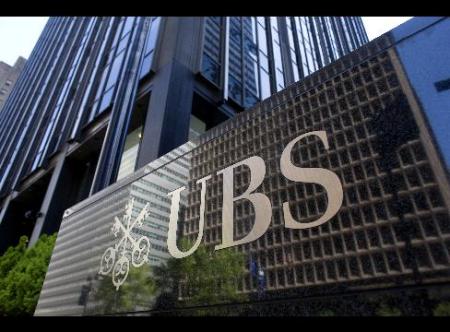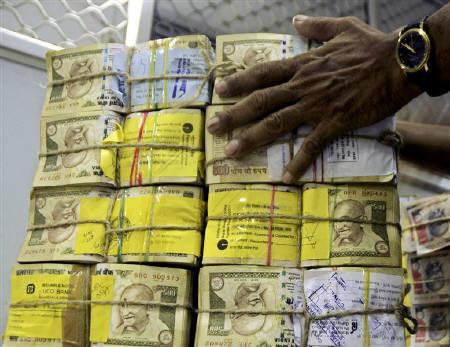M R Venkatesh
Money laundering is the culmination of several crimes. Bringing back laundered wealth into mainstream economies as good, clean money is crucial to ensure that such money is put to profitable use.
The end game of a money laundering exercise is to ensure that money is cleansed of all its criminality.
That makes money laundering a far more exotic subject than hawala. Hawala is crude, dirty and elementary.
Hawala, by the way, is an informal money transfer system without the actual transfer of money in the first place. It is akin to a bank but without any of the trappings of a formal bank. In fact, the hawala system could facilitate anyone to transfer his money from one jurisdiction into another for any reason.
. . .
EXPLAINED: How Budget helps turn black money white
For instance, a few thousand pounds given in London to a hawala operator can turn into Indian currency within a few minutes, thousands of miles away in distant India. The reverse is also equally possible with the same level of efficiency, reliability and speed.
By the same token, the Indian rupee can be converted into US dollars or Japanese Yen or Euro all in a jiffy. And the icing on the cake? These services could well be offered at your doorstep, sometimes cheaper, faster and less formally than banks.
But the issue that remains to be addressed is what if the money so transferred is illegal? It is removing this illegality that makes money laundering an extremely complex, highly sophisticated and intelligent exercise.
If hawala is usually associated with dirty money; money laundering is the act of cleansing the dirt associated with such money. In short, it is the saint who removes the taint.
. . .
EXPLAINED: How Budget helps turn black money white
Jeffrey Robinson, a recognised expert on organised crime, fraud and money laundering, explains the concept succinctly, 'Money laundering is called what it is because that perfectly describes what takes place -- illegal, or dirty, money is put through a cycle of transactions, or washed, so that it comes out the other end as legal, or clean money. In other words, the source of illegally obtained funds is obscured through a succession of transfers and deals in order that those same funds can eventually be made to appear as legitimate income.'
In effect, the money after the cleansing process must be available to a person as if it originates from a legal source.
This cleansing is done usually on foreign soil, though at times it can be done within the country's borders too. It is in this connection that Section 3 of the Prevention of Money Laundering Act, 2002 defines the offence of Money Laundering.
Accordingly, 'Whosoever directly or indirectly attempts to indulge or knowingly assists or knowingly is a party or is actually involved in any process or activity connected with the proceeds of crime and projecting it as untainted property shall be guilty of the offence of money laundering.'
. . .
EXPLAINED: How Budget helps turn black money white
The operating part, it may be noted, is to project an illegal property as an untainted one.
Budget 2011 and possible amnesty
Given this background, it may be noted that the finance minister, while dealing with the investment environment and more particularly foreign investment, states: 'Currently, only FIIs and sub-accounts registered with the Sebi and NRIs are allowed to invest in mutual fund schemes. To liberalise the portfolio investment route, it has been decided to permit Sebi-registered mutual funds to accept subscriptions from foreign investors who meet the KYC requirements for equity schemes.
This would enable Indian mutual funds to have direct access to foreign investors and widen the class of foreign investors in Indian equity market' [Para 32 of the Budget Speech].
Naturally, anticipating investment from this new avenue the Indian stock markets gave thumbs up to this proposal.
. . .
EXPLAINED: How Budget helps turn black money white
Nevertheless, it would be puerile to believe that foreign investors were queuing to invest in the Indian stock markets through the mutual fund route.
Naturally that raises the question -- who are the possible beneficiaries of this proposal?
In several of my previous columns I had pointed out how Indian capital markets continue to be distorted by the ubiquitous presence of the participatory notes (PNs), which according to some experts are unique only to India.
PNs, it may be noted, are a contract between a foreign institution and a 'foreigner' to invest into India. However, the underlying securities of PNs are Indian stocks. In contrast to the stringent Know Your Customer (KYC) norms laid out for resident Indians even for opening a bank account, the norms for PNs remains undefined.
. . .
EXPLAINED: How Budget helps turn black money white
In fact, after several rounds of litigation at various forums, one can safely surmise that there are virtually no KYC norms for PNs.
That makes transactions relating to PNs incomprehensible, especially when issued by the FIIs (foreign institutional investors). The net result: Indian regulators do not know the names of such investors, or the origin and sources of such funds.
Crucially, they can do precious little. No wonder, PNs are also referred to as Phantom Notes.
Some experts charge that this arrangement implicitly converts India into a mini-Switzerland. Professor Vaidyanathan of IIM Benguluru opines that India has to change the rules like allowing investments in Indian stocks through the participatory notes method which is secretive and allows secret funds into India -- like the Swiss banks do.
. . .
EXPLAINED: How Budget helps turn black money white
What is worrying analysts is that such money that flows into India seems to be the money of Indians, sent abroad first through the hawala route and then subsequently laundered abroad, especially in tax havens.
Then these very funds are brought into India through the Mauritius route to avoid payment of taxes in India and in Mauritius. Technically this is called round-tripping.
Statistics available in the public domain suggest that out of inbound investment into India between April 2000 and March 2009, investments from Mauritius accounted for over 45 per cent of such investments.
Given this paradigm, the issue that is raised by some experts is whether the Indian mutual funds too would issue PNs to 'foreign investors'? How could they be following the KYC norms (Know Your Customer) when the KYC norms are not precisely defined for FIIs?
. . .
EXPLAINED: How Budget helps turn black money white
Would the mutual funds go the FII way and issue PNs to some investors whose ultimate beneficiaries remain unknown to the outside world?
Would such unidentifiable 'investors' force mutual funds in India to invest such funds in those companies chosen by them and thereby short-circuit the Takeover Code, insider trading and other well-intended Regulations of Sebi?
Well, your guess is as good as mine. Nevertheless, given its track record, Sebi could either stonewall these well-intended questions or dismiss them. In the alternative, it would cryptically answer that our capital markets are well-governed, thus bringing the debate to an abrupt rest.
Considering the unfailing regularity with which Indian capital markets have been manipulated by operators and the proclivity of the regulators and the government to look the other way, I remain apprehensive of this step proposed by the finance minister.
. . .
EXPLAINED: How Budget helps turn black money white
In a way, it would be yet another wonderful opportunity for those who have laundered money abroad to bring back their wealth (of course, free of any tax!) into India. Who said the Budget did not have an amnesty scheme?
Another avenue
But if you thought that this was all, the Budget offers something more. To attract foreign funds for the infrastructure financing, the finance minister proposes to 'create Special Vehicles in the form of notified infrastructure debt funds' [Para 74 of the Budget Speech].
Interestingly the tax provision for the same was dealt with in Para 144 of the Budget Speech. Accordingly, the finance minister proposes to create special vehicles in the form of notified infrastructure debt funds and subject interest payment on the borrowings of these funds to a reduced withholding tax rate of 5 per cent, instead of the current prevailing rate of 20 per cent.
Interestingly, the Income-Tax Act has been amended to allow the central government to exempt any class or classes or persons from the requirement of furnishing returns.
. . .
EXPLAINED: How Budget helps turn black money white
Since foreign investors are subject to a nominal rate of 5 per cent, and such taxes being deducted by the borrowers, it is quite possible that the central government shall exempt such class of investors from filing their return in India.
That, on a superficial level, looks to be in order provided we continue to be innocent enough to believe that foreigners would be parking their money in India and participate in improving our infrastructure. How comical! Indeed we have to suspend our sense of disbelief to proceed further.
Little do we realise that, in the process, any 'foreign' investor could well be outside the scrutiny of any Indian tax authority. That makes this arrangement a perfect amnesty scheme for all Indians who have illicit wealth abroad.
Invest in India, possibly at attractive rates of interest without any fear of anyone, least of all the taxman. Of course, that could involve paying a marginal tax of 5 per cent, not on the illicit wealth parked abroad, but on the income that would accrue in future!
. . .
EXPLAINED: How Budget helps turn black money white
The United States economy is almost in ruins. Europe is going the Titanic way. With each passing day, whether we like it or not, there is a global crusade against tax havens. In the era of Wikileaks, parking illicit wealth in tax havens becomes a risky proposition too.
It is given these constraints that India seems to have provided an honourable route to all those with illicit wealth abroad to participate in our march to progress. What a wonderful idea, to have an amnesty scheme without having to call it as one!
It is indeed a pity that most analysts missed this viewpoint while analysing the Budget. And that made the job of the government that much easier.
The author is a Chennai-based chartered accountant. He can be contacted at mrv@mrv.net.in













article